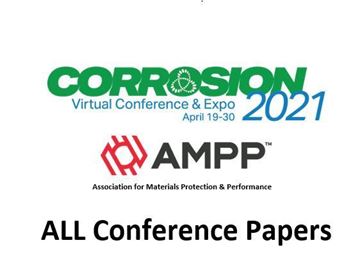Search
Assessment of Degradation Mechanisms for Nuclear Metal Fuel and TRISO Fuel During Transportation and Storage
Also Purchased
Successful Application of MP-ICDA to Assess and Confirm Crude Oil Pipeline Corrosion Threats in Kuwait using ILI
Product Number:
51321-16271-SG
Publication Date:
2021
$20.00
Compatibility of Polymers Exposed to Heating Oil Blends With 10 % and 20 % Biodiesel (FAME)
Product Number:
51321-16222-SG
Publication Date:
2021
$20.00
51321-All-CORROSION 2021 Virtual Conference Digital Proceedings
Product Number:
51321-ALL-SG
Publication Date:
2021
$149.00




